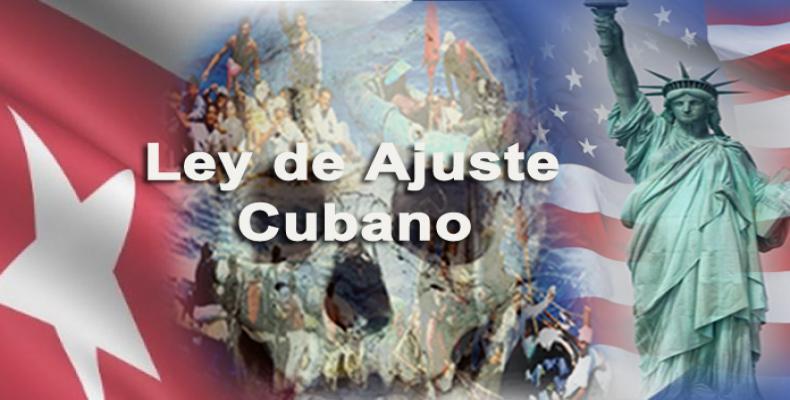Washington, December 16 (RHC-PL) -- The Cuban Adjustment Act is coming under fire by U.S. public opinion due to the unique treatment it offers Cubans, in contrast to the treatment of other immigrants.
The U.S. Congress approved the Cuban Adjustment Act in 1966 on the pretext of giving refuge to immigrants from Cuba, but authorities in Havana have repeatedly complained that it constitutes an element of destabilization and encourages illegal emigration.
In recent days, several U.S. media sources have called on Congress to reconsider the validity of the Cuban Adjustment Act.
In one case, an editorial by Bloomberg Business published on December 9th said that Cubans have benefited from exceptional standards for over half a century. The editorial adds that this piece of legislation is the gateway for people who are not really politically persecuted. The publication urged U.S. President Barack Obama to deport Cubans who want to benefit from its protection but who can not prove they are political refugees.
Added to this law, the so-called "wet feet, dry feet" policy also encourages illegal immigration. And the Cuban Medical Professionals Program (CMPP), which grants visas to doctors and other medical staff from Cuba who are carrying out international missions, also lures Cubans to the U.S.
The New York Times has also joined the discussion of this matter and in at least two editorials this year has called the Cuban Adjustment Act a "relic of the Cold War" which must be annulled because unique treatment is given to immigrants from the island.


